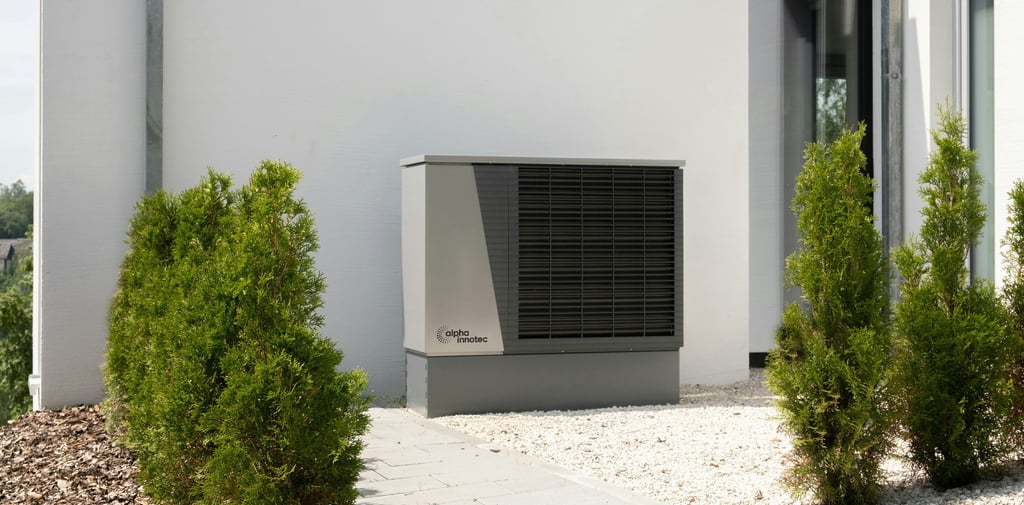Heat pumps: Efficient heating technology for the future
Welcome to the blog of Hochheiden Hausverwaltung, your trusted partner in property management. In view of the growing awareness of environmental protection and rising energy costs, many property owners are looking for sustainable and cost-efficient solutions for heating their buildings. Heat pumps offer an advanced technology that promises both ecological and economic benefits. In this article, we would like to give you an overview of heat pumps, explain how they work and highlight the advantages of this heating technology.


What are heat pumps?
Heat pumps are systems that extract ambient heat from the air, ground or groundwater and use it to heat buildings or provide hot water. They work on a principle similar to that of a refrigerator, but in reverse: instead of removing heat from the interior and releasing it outside, they draw heat from the environment and feed it into the building's heating system.
How heat pumps work
Heat pumps utilise a refrigerant circuit that transports heat energy by compressing and expanding the refrigerant. The system essentially goes through the following steps:
Heat absorption: A refrigerant with a low boiling point absorbs ambient heat and vaporises.
Compaction: The vaporised refrigerant vapour is passed through a compressor and compressed, causing its temperature to rise.
Heat dissipation: The hot vapour gives off its heat to the building's heating system and condenses in the process.
Expansion: The now liquid refrigerant is channelled through an expansion valve, causing the pressure to drop and the cycle to start all over again.
Advantages of heat pumps
Energy efficiency: Heat pumps are highly efficient as they supply more energy in the form of heat than they consume in the form of electrical energy. This results in lower operating costs and a reduced carbon footprint.
Environmentally friendly: As heat pumps mainly utilise ambient heat, they help to reduce dependence on fossil fuels and lower greenhouse gas emissions.
Versatile: Heat pumps can be used for heating, cooling and hot water, making them a versatile solution for buildings.
Eligibility: Due to their environmental benefits, the installation and operation of heat pumps are supported by government subsidy programmes in many countries, including Germany.
Considerations before installation
Site conditions: The efficiency of a heat pump can vary depending on the availability of ambient heat (air, ground, water).
Initial investment: The purchase costs for heat pump systems are generally higher than those for conventional heating systems, but are amortised over time through lower operating costs.
Planning and installation: Professional planning and installation by qualified specialists are crucial for the optimum performance and efficiency of the system.
Conclusion
Heat pumps are a forward-looking solution for heating and cooling properties, offering significant benefits in terms of cost, environment and efficiency. They are worth considering for property owners who want to invest sustainably. Hochheiden Property Management is on hand to evaluate the options for integrating heat pump technology into your property portfolio and to guide you through the entire process.
Do you have questions about implementing heat pumps in your property or do you need professional support in managing your property? Contact us - we look forward to advising you and finding sustainable solutions for your property together.
Contact
info@hochheiden-hv.de
Socials
Stay informed at all times
+49 30 692 099 540
